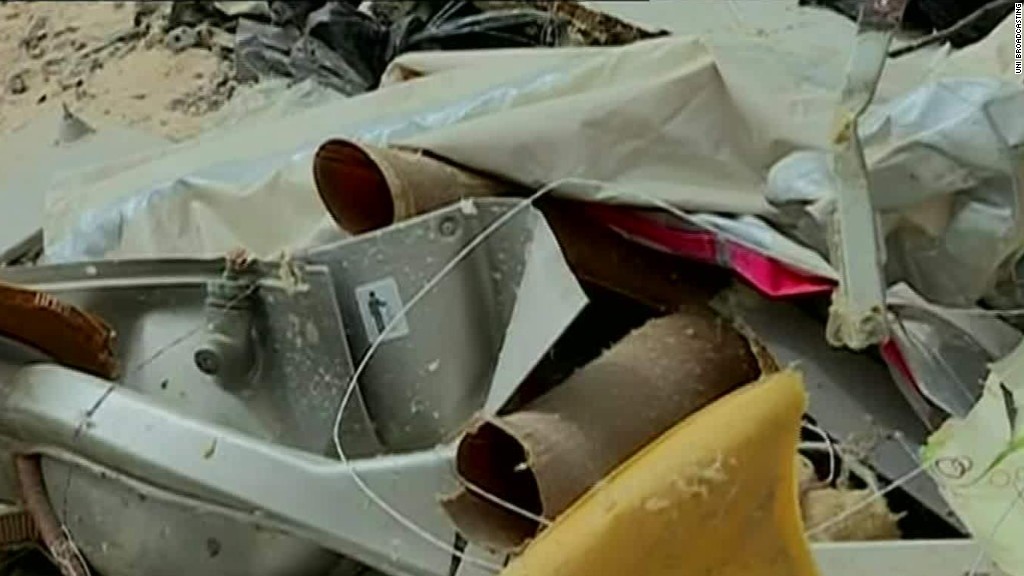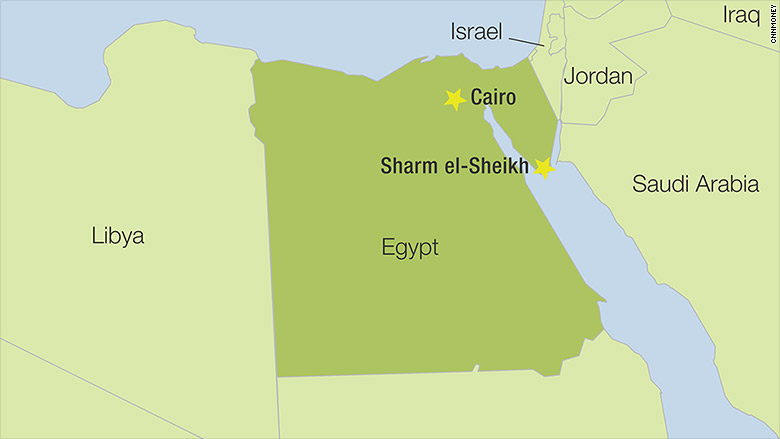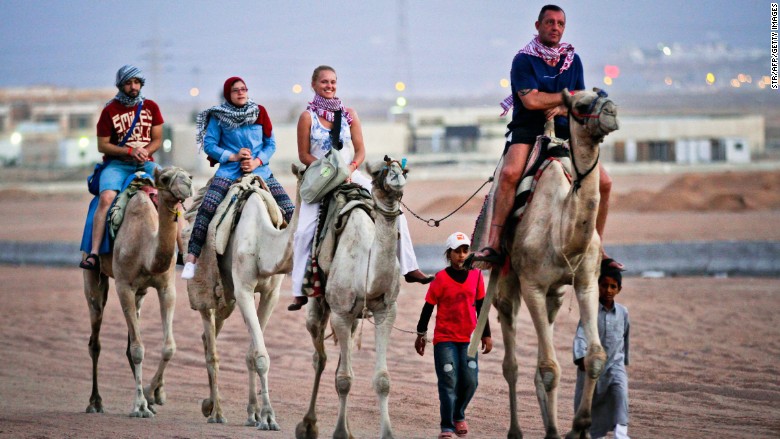
Egypt's tourism industry is reeling from suggestions that a bomb may have brought down a Russian plane shortly after it took off from the popular holiday resort of Sharm el-Sheikh.
British Prime Minister David Cameron said Thursday the crash of Metrojet Flight 9268 was "more likely than not" caused by a bomb. U.S. officials have suggested that terror group ISIS or its affiliates were to blame.
The U.K. government has barred airlines from taking passengers to Sharm el-Sheikh because of concerns about security at the resort's airport, and is working to help bring at least 9,000 travelers home. France has also stopped flights to the airport while the Netherlands and Germany have issued warnings about travel to the area.
This week's developments could prove to be "catastrophic" for Egyptian tourism, said Nadejda Popova, a senior travel analyst at Euromonitor International.
Britain is the second biggest market for Egyptian tourism, behind Russia. Roughly 2.8 million Russians, one million Brits and nearly 600,000 Germans visited Egypt last year, according to Euromonitor data.
U.S. carriers do not fly to Sharm el-Sheikh after a March notice from the Federal Aviation Administration warned about "hazards associated with extremist activities."

Egypt has been trying to rebuild its tourism industry since political turmoil sparked by the Arab Spring protests in early 2011 scared millions of tourists away.
Annual visitor numbers slumped from a record 14.7 million in 2010 to around 10 million since then, according to the UN's World Tourism Organization.
But the industry has proven resilient in the past to acts of terrorism and bloodshed. Tourists continued to visit the country despite an increase in militant attacks since President Mohamed Morsy was overthrown in July 2013.
And Sharm el-Sheikh on the Red Sea had been particularly insulated from trouble. Experts say it was known as a safe holiday spot.
"Tourists ... dissociated this part of Egypt from the unrest elsewhere," said Popova.
"The decision of the UK is going to have a very serious impact on the local economy and of course on tourism as the only pockets of safety in the country in terms of tourism are now compromised."
Other experts say it is too soon to gauge the impact on tourism because not enough is known about the cause of the plane crash.
"Egypt is a leading tourism destination with a proven strong capacity to rebound and we trust this time will not be different," said Taleb Rifai, secretary-general of the UN World Tourism Organization.

Egypt's tourism minister Hisham Zaazou told CNN on Wednesday that he was concerned about the short-term prospects for tourism in the country, but hoped that a review of the plane's black boxes would show terrorist activity did not lead to the crash.
He had been planning to launch a big tourism travel campaign, using the tag #ThisIsEgypt on social media.
Tourism in Egypt accounts in total for about 13% of the economy, according to a report by the World Travel & Tourism Council. About 12% of jobs in the country are either directly or indirectly supported by the tourism industry, it estimated.

